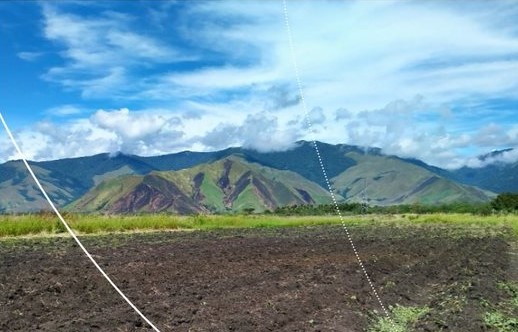
Port Moresby, PNG, November 22, 2021— The people of Papua New Guinea (PNG) stand to benefit from jobs and sustainable economic growth with the development of the Markham and Ramu valleys as an agricultural growth corridor, new research from the International Finance Corporation (IFC) shows.
As PNG responds to the impacts of COVID-19, the development of this corridor has the potential to boost exports and investment, domestic production and trade, and employment in agri-business while enhancing food security, according to a report released today by IFC, a member of the World Bank Group. The economic shock caused by the pandemic has amplified existing challenges in PNG, including in the agriculture sector, as well as job creation and barriers to growth in the broader economy.
The study, Markham/Ramu Agricultural Growth Corridor: A Possible Path of Transformational Agricultural Development, includes several recommendations for a development plan and investment blueprint to accelerate agricultural green growth in PNG through infrastructure development and better market linkages over the next 20 years. The report underscores the potential for a growth corridor to be a tool for inclusive agricultural development while yielding benefits for the private sector and enabling rural farming communities to participate in the potential in the Markham-Ramu economic corridor.
While the suggested agricultural transformation of the valleys is a long-term project dependent on government and private sector support, IFC has identified several opportunities which could be realised more quickly, such as animal protein, animal feed, fruit and vegetable production, and cocoa to chocolate production. This well-connected agricultural growth corridor, with access to key highways, has the potential to also provide for the region beyond PNG, contributing to food security in the Pacific.
"Identifying strategic economic growth corridors through evidence-based research will help to support PNG's sustainable economic development," said Australian High Commissioner to PNG, Jon Philp. "This study highlights the potential investment opportunities in the Markham-Ramu Valley and how the private sector can be supported to trigger transformational change in the agriculture sector, in line with our objectives under PNG and Australia's Comprehensive Strategic and Economic Partnership (CSEP). Australia is pleased to support PNG in unlocking its agriculture potential through development partners such as the IFC Partnership."
The Markham and Ramu valleys are strategically located between PNG's largest seaport in Lae and the heavily populated Highlands region, producing oil-palm, sugar, cocoa, fresh produce, and livestock. However, at least 85 percent of arable land in the area remains underutilized.
"New Zealand has been supporting the agriculture and energy sectors in Papua New Guinea to enable the country to achieve its economic development aspirations. To promote the development of the agricultural growth corridor, especially in the Markham and Ramu Valleys, New Zealand has partnered with Australia to support the work of IFC in PNG, in recognizing that private sector-led growth as a key priority for development," said Dr Nathan Ross, Deputy High Commissioner for New Zealand. "This is a synergy that aligns well with our development approach in working with strategic partners like IFC to effect systems changes at multiple levels involving policy makers, regulators and the private sector to unlock the potential of the private sector to drive those changes."
"Developing the Markham and Ramu valleys will be greatly beneficial to the people of Papua New Guinea. World Bank research shows growth from agriculture can have a more significant impact on the poorest 40 percent of the population compared to growth in other parts of the economy," said IFC Resident Representative for Papua New Guinea Markus Scheuermaier. "With 80 percent of the population working in agriculture, it is essential that smallholder farmers are linked to markets and derive income from their crops."
Coordination among government, donors, and the private sector will be critical to trigger agricultural transformation in the valleys, but it is equally important from the start to increase private sector engagement. The study urges a public-private partnership structure be considered, with large agribusiness food processors included as flagship partners to increase the interest of smaller companies.
About PNG Partnership
IFC's work in Papua New Guinea is guided by the PNG Partnership. Australia, New Zealand, and IFC are working together through the Partnership to stimulate private sector investment and reduce poverty in Papua New Guinea.
About IFC
IFC—a member of the World Bank Group—is the largest global development institution focused on the private sector in emerging markets. We work in more than 100 countries, using our capital, expertise, and influence to create markets and opportunities in developing countries. In fiscal year 2021, IFC committed a record $31.5 billion to private companies and financial institutions in developing countries, leveraging the power of the private sector to end extreme poverty and boost shared prosperity as economies grapple with the impacts of the COVID-19 pandemic. For more information, visit www.ifc.org.
Stay Connected
www.ifc.org/eastasia
www.twitter.com/IFC_EAP
www.youtube.com/IFCvideocasts
www.ifc.org/SocialMediaIndex
www.instagram.com\ifc_org
www.facebook.com/IFCeap
www.facebook.com/IFCwbg
Contacts
Stay Informed
Sign up to have customizable news & updates sent to you.